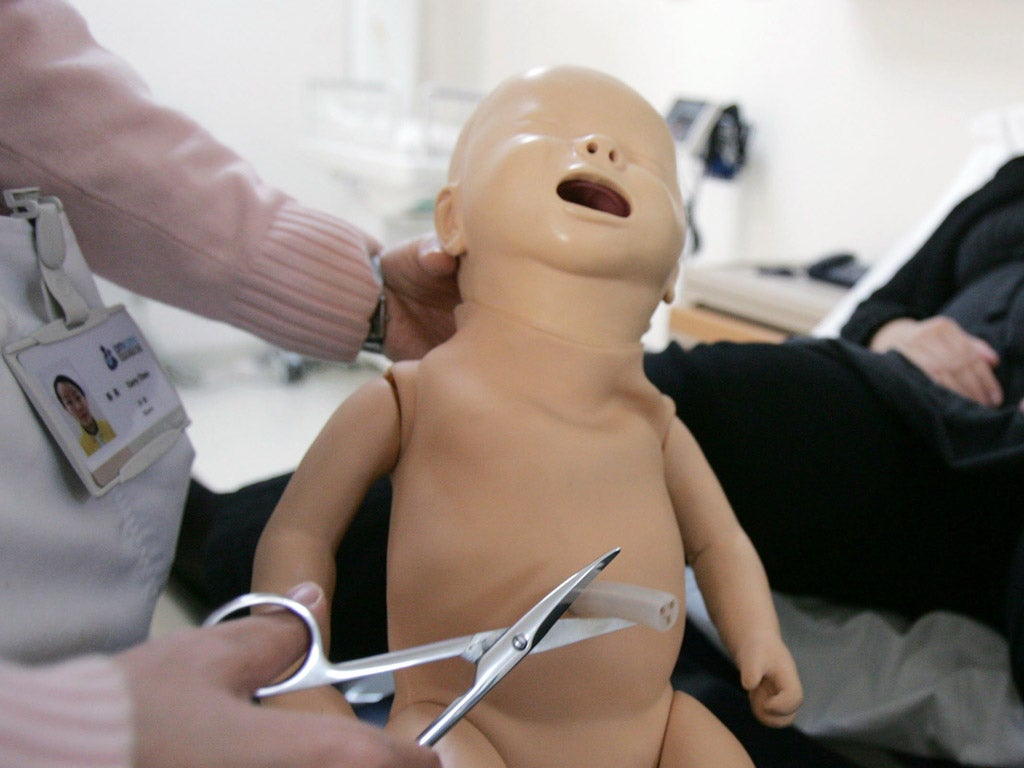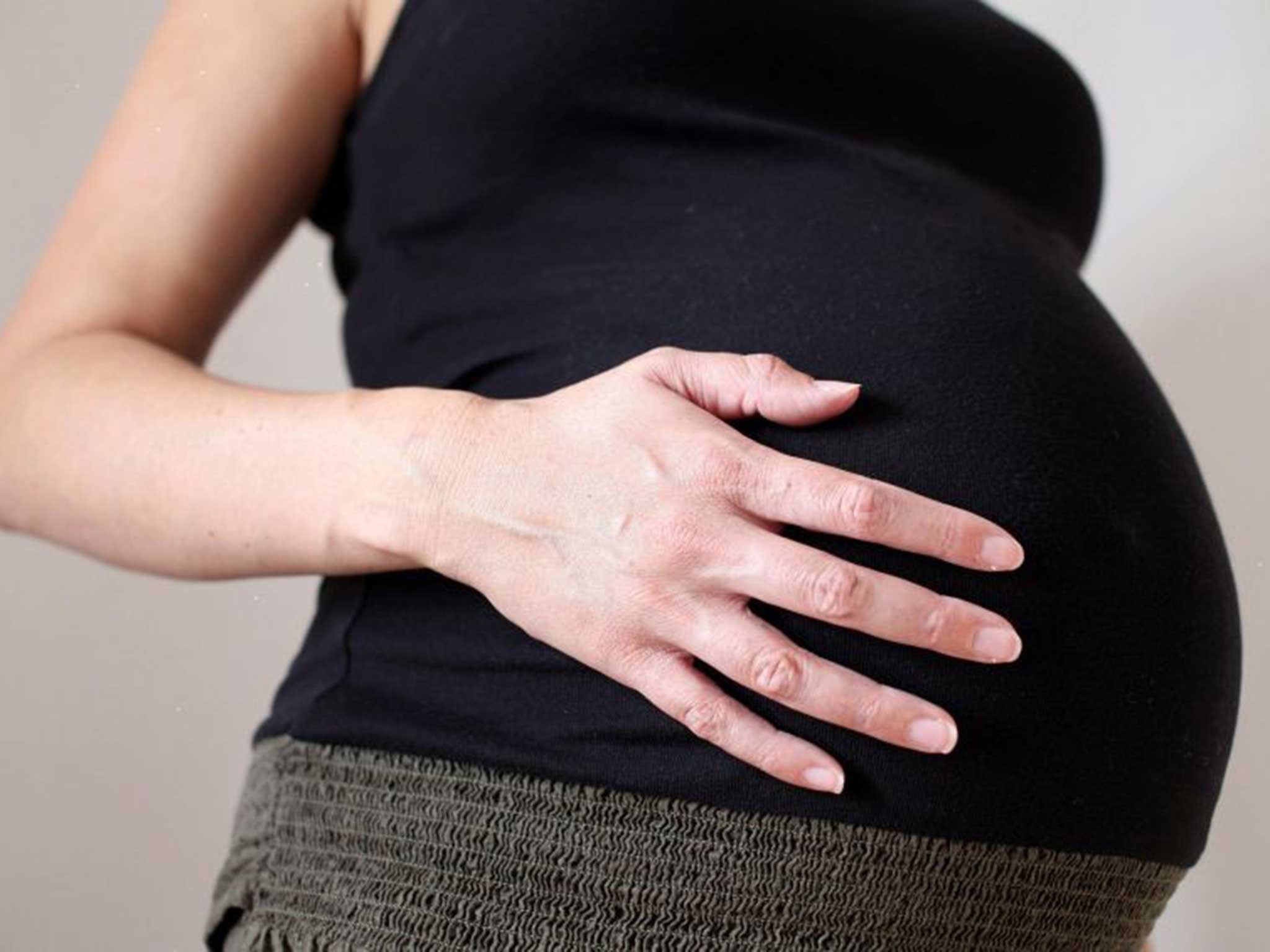Explaining tokophobia, the phobia of pregnancy and childbirth
A recent study found that one of the biggest influences women reported on their fear of childbirth was hospital-based reality television programs and medical dramas

Your support helps us to tell the story
From reproductive rights to climate change to Big Tech, The Independent is on the ground when the story is developing. Whether it's investigating the financials of Elon Musk's pro-Trump PAC or producing our latest documentary, 'The A Word', which shines a light on the American women fighting for reproductive rights, we know how important it is to parse out the facts from the messaging.
At such a critical moment in US history, we need reporters on the ground. Your donation allows us to keep sending journalists to speak to both sides of the story.
The Independent is trusted by Americans across the entire political spectrum. And unlike many other quality news outlets, we choose not to lock Americans out of our reporting and analysis with paywalls. We believe quality journalism should be available to everyone, paid for by those who can afford it.
Your support makes all the difference.For expectant mothers, it’s very normal to approach birth with a feeling of trepidation, particularly for the first baby. From the moment a pregnancy is announced, the average pregnant woman is inundated with horror stories of pain and long labours by supposed well-meaning friends, and it can be hard to focus on a positive birth experience when you don’t know what to expect.
But for some women, the fear of childbirth goes beyond trepidation into full-blown anxiety, panic and fear. Known as tokophobia, this phobia of childbirth affects somewhere between 3-8 per cent of pregnant women.
Symptoms include worries specifically about the pregnancy and birth, a fear of harm or death related to the birth, poor sleep, and a sense of hyper-arousal (rapid heartbeat and breathing, difficulty winding down). The fear of childbirth is a common non-medical reason for requesting a caesarean section, and women with this fear have a much higher rate of both caesarean delivery and use of epidural anaesthesia.
There is no clear path to developing fear of childbirth, but there are some risk factors that we know about. A history of anxiety or depression is one risk factor, as is a history of childhood abuse, be it sexual, physical or emotional abuse.
Some studies have also identified patterns with age, suggesting younger mums are more vulnerable, as are those with less education, and mums without a strong social network.
However, a recent study found that one of the biggest influences women reported on their fear of childbirth was the media. Hospital-based reality television programs and medical dramas often feature storylines with dramatic emergency situations during childbirth and this may be all women know of giving birth prior to the event.
We also know that around 95 per cent of pregnant European women report searching for pregnancy and birth information online, and social media and blogs hold the potential for the circulation of misinformation that may heighten fears rather than allay them.
There is another group of women who may find pregnancy and childbirth frightening due to related fears. One of the most common phobias in adults is blood/injury phobia, often including a fear of injections. Pregnancy and childbirth is hence very confronting for these women, who may faint or experience extreme distress at even routine blood tests throughout their pregnancy.
Researchers have found that for first time mothers, a positive birth experience can often relieve the fear of childbirth so that it is no longer an issue for future pregnancies. However, whether or not women start with a fear of childbirth, a negative birth experience can make them up to five times more likely to develop tokophobia for future pregnancies.

A negative experience of birth may be due to complications, feeling out of control, dissatisfaction with care providers, or just not having the birth that was expected. Between 2-6 per cent of women report post-traumatic stress syndrome (PTSD) following a difficult birth experience. PTSD is the disorder once known as ‘shell shock’ for its affliction of soldiers following war, and is characterised by nightmares and re-experiencing of the birth trauma, avoidance of all reminders of the birth, and hyper-arousal. Without treatment, PTSD can limit family size and cause problems in women’s relationships with their partner and their child.
While we may not hear much about tokophobia and post-birth PTSD, their prevalence suggests we do need to look out for women who may be suffering both before and after birth. In addition to the distress at the time, stress and anxiety during pregnancy are linked to a higher rate of preterm birth and later behavioural problems in children.
The good news is that like all anxiety disorders, the fear of childbirth and PTSD can be addressed and treatments are available. One of the most vital elements of treatment is education on birth, whether through the obstetric care provider, midwives, or antenatal classes. Knowing what to expect and having an agreed plan with your care provider can assist to overcome some of the irrational fears.
Linked to this, a supportive and trusting relationship with the care providers who will manage the birth is essential. This is not always possible as some obstetric settings do not allow for repeated contact with the same provider, but a relationship of trust will be more likely to create a positive birth experience.
When problems do occur in pregnancy and birth, a post-birth debriefing can be useful and may help prevent the development of PTSD symptoms. Understanding what went wrong and why things happened the way they did can help with processing the events and accompanying trauma.
As with other anxiety disorders, relaxation, light exercise and slow breathing can help to calm the body and relieve the hyper-arousal that comes with the fear of childbirth. A psychologist can assist with other anxiety management techniques that can help to minimise fears.
For those who find the idea of pregnancy and birth overwhelming, it is important to know that help is available and such symptoms can be successfully treated. The first step is confiding your fears so that those around you can start to support you through what could be a wonderful journey.
Join our commenting forum
Join thought-provoking conversations, follow other Independent readers and see their replies
Comments